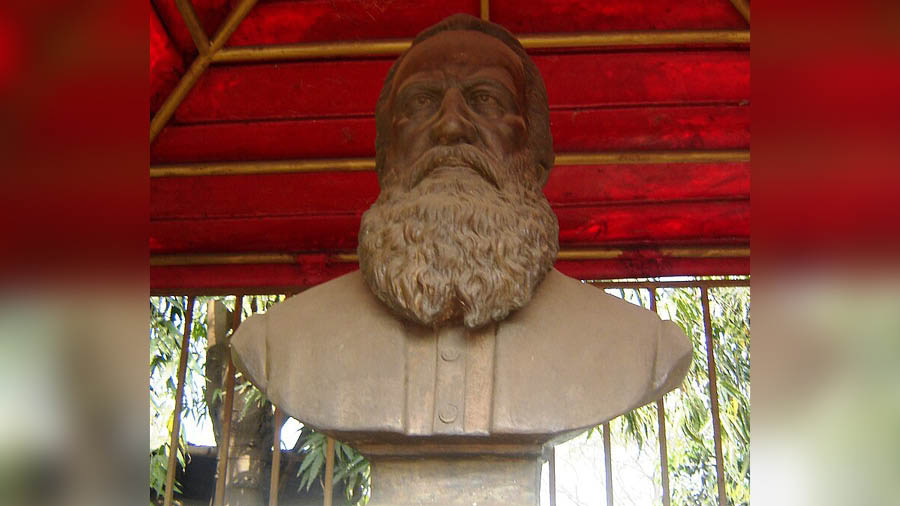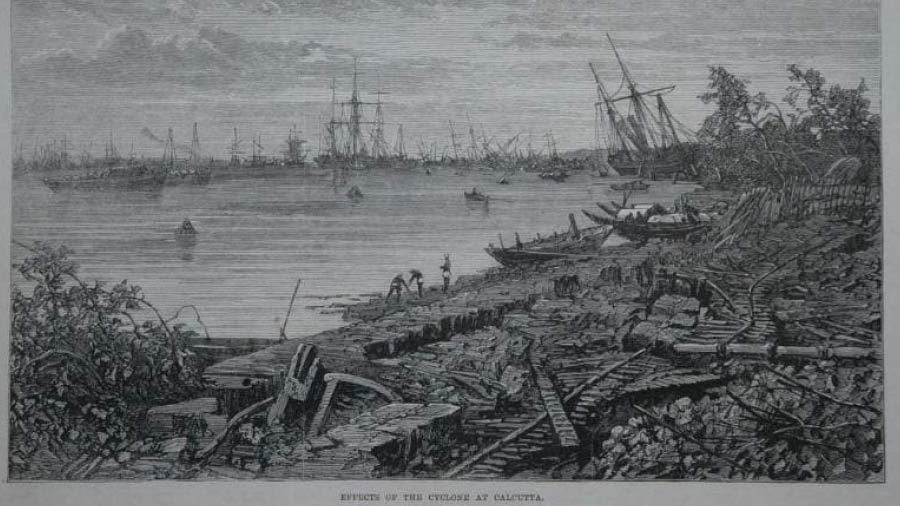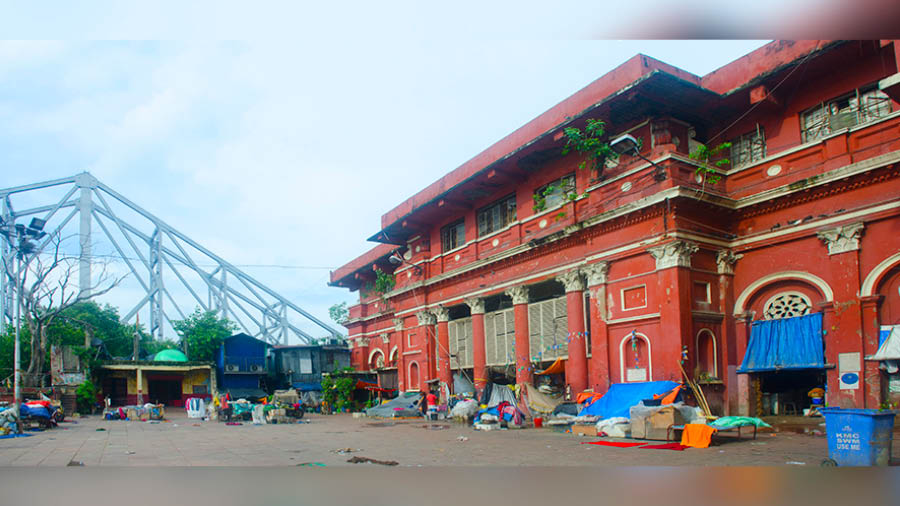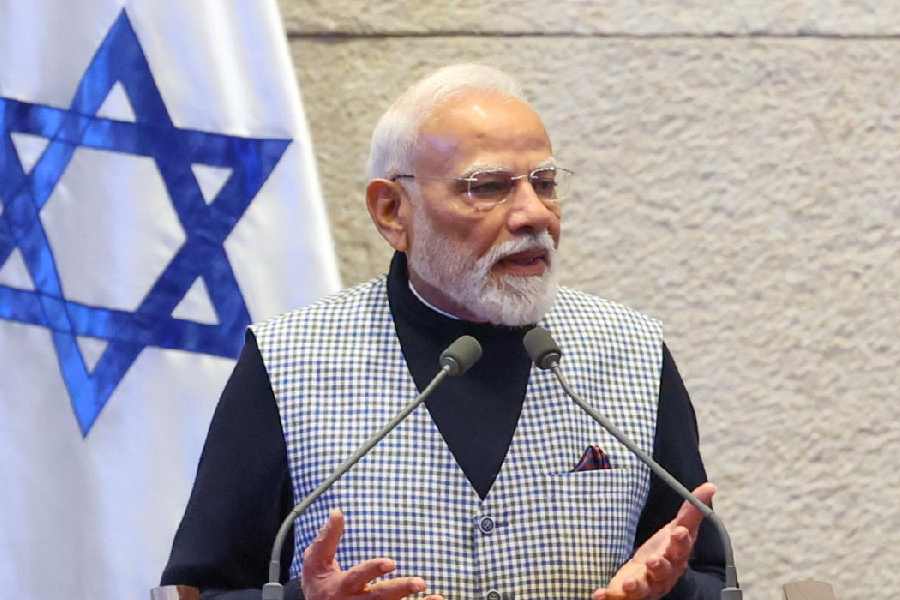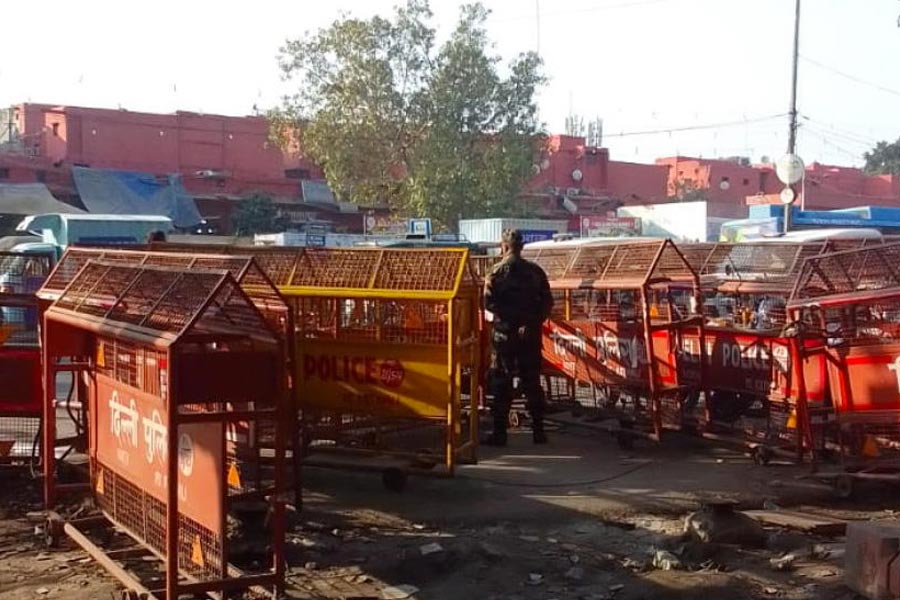Around 1858, peasants engaged in indigo cultivation across Bengal rose in revolt over the inhuman treatment meted out by their white masters. In history, this is documented as nil bidroho (indigo revolution). Starting from Nadia, it quickly spread to Murshidabad, Birbhum, Burdwan, Pabna, Khulna and Jessore. The revolt simmered over a year and finally subsided when the colonial government announced the formation of the Indigo Commission in 1860 to look into matters of peasants’ rights.
While the revolt was rural and agrarian by nature, it did not go entirely unnoticed by the urban Bengali middle class. The foremost effort in this line came from playwright Dinabandhu Mitra who penned an iconic play called Nil Darpan (Indigo Mirror). Mitra was highly moved by the plight of the poor peasants and the oppression carried out on them by the European indigo planters. He wanted this affair to become a mainstream talking point in Calcutta society and to force the colonial administration to act for protecting the peasants’ interests.
In 1840, a 26-year-old Irish priest arrived in Calcutta to join the Church Missionary Society (CMS) here. His name was James Long. From his arrival till 1848, Long was a tutor at a school run by the CMS for non-Christians at Amherst Street. In 1848, he left for home to get married and returned after a year, now entrusted with the charge of the CMS mission at Thakurpukur — back then, a tiny village about a day’s ride from Calcutta by bullock cart.

Playwright Dinabandhu Mitra who penned an iconic play called 'Nil Darpan' (Indigo Mirror) Wikimedia Commons
During his time as a tutor at the CMS School at Amherst Street, one of Long’s students was Dinabandhu Mitra (Mitter). In his two decades in Bengal, James Long — now a Reverend — had shown a keen interest in Bengali literature. His 1851 work, Bengali Proverbs, is considered an important constituent of early Bengali literature.
Around 1861, Rev. Long received a copy of Nil Darpan from his erstwhile student, Mitra. The abject reality that the play was based on struck a chord with Rev. Long, a habitually kind man. He raised the matter with Walter Scott Seton-Karr, Secretary to the Governor of Bengal and a former president of the Indigo Commission. Seton-Karr, in turn mentioned the play to John Peter Grant, the Lieutenant Governor of Bengal. Grant then told Seton-Karr to see if the play can be translated into English. Seton-Karr conveyed this to Rev. Long.
Rev. James Long now took it upon himself to arrange the translation. He got Mitra’s original play translated into English, the identity of the translator remaining anonymous. Rev Long wrote an introduction himself and got 500 copies printed by the Calcutta Printing and Publishing Press at the cost of some three hundred rupees. In the cover page, in place of the name of the translator, it simply said “A Native.”

The front page of 'Nil Darpan' Wikimedia Commons
Unbeknownst to Lt. Gov. Grant, Rev. Long started mailing across copies of the translated play in official government envelopes to prominent European personalities of the day, both in India and abroad. When the matter came to light, it prompted a severe backlash from the indigo planters. A lawsuit was filed against Rev. Long, charging him with slandering the good name of the editors of The Englishman and The Bengal Hurkaru — two pro-planters’ newspapers — and also bringing to disrepute the indigo planters of Bengal as a whole. In his introduction to the play, Rev. Long had written that the contents were “plain but true.” This was now used as a weapon against him.
Clement Henry Manuel, the proprietor of the Calcutta Printing and Publishing Press, was arrested and indicted by the Court. On Rev. Long’s advice, Manuel pleaded guilty and named Long as his employer. Rev. Long thus took the entire responsibility for the act. Rev. Long went to trial in July, 1861. Despite extensive questioning, he remained silent on the identity of the translator.
Despite much public sympathy, the Court found Rev. Long guilty and sentenced him to one month prison-term and a fine of Rs 1,000. Noted Bengali writer Kaliprasanna Singha paid the fine on Long’s behalf. Rev. Long served his prison term and was released after a month. Rev. and Mrs. Long shortly left for Britain to avoid the swirling controversy and only returned three years later.

An Indigo Factory Bengal, 1863 (shelfmark WD 1017) Wikimedia Commons
In his later life, after losing his wife to dysentery, Rev. Long moved in with his close friend Rev. Krishna Mohan Banerjee. Post the Indian Rebellion of 1857, the relationship between the colonial ruler and the Indian subject had deteriorated sharply. In this backdrop, the two men regularly hosted joint Indo-British soirees and tried to foster an amicable relationship between the two communities. Rev. Long retired from the CMS in 1872 and finally left India. He spent his final years in London.
Intriguingly, the Reverend took with him to his grave the identity of the man who translated Nil Darpan from vernacular to English. Contemporary observers almost in unison believed that the translator was none other than Michael Madhusudan Dutt. However, Long never, even in private, revealed the identity nor did Michael ever speak about it. It is one of the mysteries from the days gone by that will always remain unsolved.
In modern times, a major thoroughfare running through Behala and Thakurpukur has been named James Long Sarani — in honor of the kind hearted priest, who was unafraid to take on the might of the state for the right cause.

